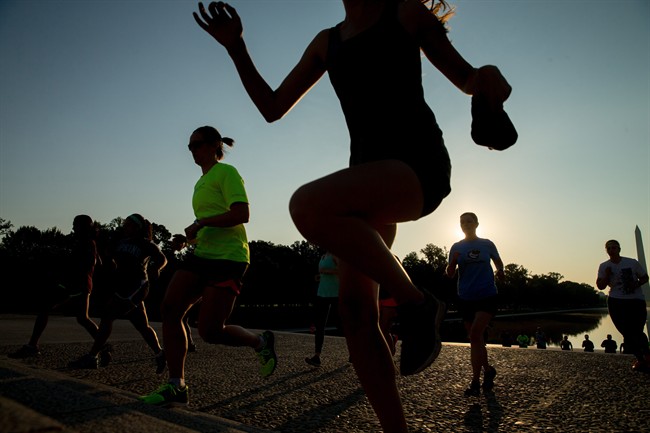If you hate working out, get ready for some good news.

For one, science suggests being exercise-averse is a sign of superior intelligence. That’s the big takeaway from a new study titled, “The physical sacrifice of thinking: Investigating the relationship between thinking and physical activity in everyday life.” It was published this month in the Sage Journal of Health Psychology.
Researchers at Florida Gulf Coast University recruited 60 college students, half of whom had a high need for cognitive stimulation, the others not so much (they preferred to avoid anything too mentally taxing).
Both groups were outfitted with fitness trackers, which showed those who craved a mental workout were far less likely to do a physical one during the week.
If their deep thoughts include exercise, other research shows they might just be able to trick their body into believing it got a workout.
As Jim Davies, a cognitive psychology professor at Carleton University, explained in an essay for Nautilus: “just imagining a workout can make you stronger.“
“When you imagine exercising, your breath and heart rate actually increase,” Davies wrote.
He cited studies which showed doctors who mentally practice before surgery, and golfers who imagine a hole in one, are more likely to outperform those who skip the psychological warm-up.
One exercise scientist reportedly found pinkie strength could be improved 22 per cent through sheer imagination, compared to 30 per cent via actual exercise.
While Davies hasn’t seen that replicated on other muscles, he tells Global News there’s “no reason to think it wouldn’t be.”
“When you are mentally doing physical exercise,” he said, “it must trigger the same part of the time as when you actually do exercise … and results in signals being sent to those muscles to build.”
He likes to put the theory to practice himself.
“Sometimes when I lie in bed, I think of doing pull-ups,” Davies admitted. “The big problem is you do get bored of it.”
The magic number for a “mental practice session” appears to be 20 minutes, according to an analysis of multiple studies.
It’s the perfect length for a sit-down workout session for anyone who takes transit. You can even listen to music as you imagine busting a sweat. The key, Davies said, is just not to do any other physical activity at the same time.
WATCH: Working out more does not help with weight loss, says study

And you may want to avoid daydreams of food — or looking longingly at all that “food porn” on Instagram. Some studies suggest the sheer thought of sweets can sometimes make you store calories.
But the science on that is a little mixed. Davies mentioned other research which shows imagining food might make you eat less.
READ MORE: Can drinking wine replace the gym?
“If you imagine vividly eating a bowl of ice cream,” he explained, “you will then subsequently crave the ice cream less because part of your body will think you’ve already eaten it.
To be on the safe side, stick with the thoughts of push-ups. And maybe actually do a few once in a while.


Comments